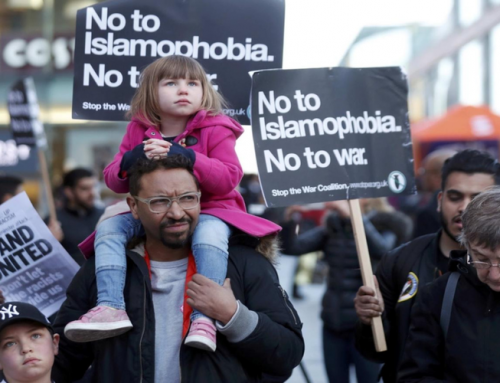Of all Islamic concepts, the concept of Jihad has been most distorted and misused in recent years by a number of movements and sects, each saw in itself the sole legitimate representative of Islam, and set itself as the only authority to speak on its behalf and to defend its values.
The concept of Jihad, which was first declared to preserve the values of security, peace and freedom, to save people’s lives and to secure their properties, also is bound by strict rules and conditions, which are no longer considered nowadays. Such rules, as dictated by the Prophet Mohammed and his successors, include avoiding harm to women, children, animals and trees. To these groups, Jihad now includes bombing markets crowded with civilians, and killing Muslims at mosques.
To these groups, pure human values tied to this religious practice have become useless, let alone transforming the meaning of Jihad to become ‘the most important pillar of religion’. To support their ideology, they took some hadiths out of their context. An example of this is, “‘Whoever dies without having gone out for jihad or having thought of doing so, dies on a branch of hypocrisy” (Saheeh Muslim). Generalizing the theory of Hakemiyya to include Muslim societies among non-Muslims, these movements have desperately sought to justify their standing. Because of religious extremism, killing Muslims and fighting their own governments have become a cornerstone for violent and extremist discourse.
In the table below, I make a simplified comparison of the concept of jihad as set by the majority of Islamic scholars compared to that of a few extremist scholars. With that, readers will learn how these extremist groups have deviated from the path of the Muslim nation, ignored consensus and pried on our heritage and history.
|
|
Perspective of the majority of scholars on Jihad |
Perspective of extremist groups on Jihad |
|
Applicability |
Semantically speaking, the meaning of Jihad in Arabic goes beyond fighting. It includes struggling one’s own sins and forcing oneself to be good. It also includes making a good argument and calling people to do the right thing. At the end, one resorts to fighting. (Keshaf Al-Kena’ by Al-Bahuti) and (Mataleb Oli Al-Nuha by Rehibani) |
Jihad is only restricted to fighting, and is reduced to killing. |
|
Purpose of Jihad |
Jihad is a means to an end and not an end in itself. In this context, Jihad is made for a purpose. Sometimes to do Jihad means ‘do not fight’. Imam al-Ramli says that Jihad includes tightening defenses as well as fighting. In our time, Jihad means raising economy and strengthening the army of and state’s administrative systems, and protecting borders against any aggression. (Makased Al-Sharia by Ibn Ashour) and (Nihayat al-Muhtaaj by al-Ramli) |
Fighting is an end in itself, and it is an obligation on all Muslims everywhere.
Al-Fareeda Al-Gha’iba by Abdelsalam Faraj |
|
The ultimate purpose of Jihad |
The ultimate purpose of Jihad is to guide [people to the righteous path]. Imam al-Subki says in his commentary on the Prophet’s saying to Ali when he sent him to Khaybar, “By Allah, if a single person is guided by Allah through you, it will be better for you than a whole lot of red camels”. (Fighting in this case is made only to guide people, which was wise at the time. However, if it is possible to guide them by debate and persuasion, it is far better. In that same sense, scholarly knowledge is far better than spilling the blood of martyrs; i.e. Muslims dying during a battle). (Al-Fataawa by al-Subki). Al-‘Izz ibn ‘Abd al-Salam also said: “The means fall down with the fall of their purposes” (Qawa’id al-Ahkam). |
Jihad has no purpose, except to subjugate and control. |
|
Jihad is a Sharia law |
Jihad is a Sharia law. It could be obligatory, preferable or forbidden. It is determined contextually. God has determined its binding conditions. Without these conditions in place, Jihad is forbidden. Prophet Mohammed said when describing washing in wudu (Islamic ablution): “Whoever does more than that has done badly, act extremely and wrongly”. The prophet said this with regards to such a small thing like wudu. How about those who scared and killed people in the name of Jihad? Jihad then needs a detailed and thoughtful Fatwa, not a youthful zeal. Al-Qarafi said: “As Allaah has prescribed the rulings, He has prescribed their contraries” (al-Forouq by al-Qarafi) |
It is only an obligation. Fatwas on this are given by young uneducated people, or people who do not have real knowledge about religion. These include Abdelsalam Faraj, Syed Qutub, Mustaga Shukri, Adnani and others. |
|
Jihad: defense or aggression? |
The Islamic Jihad has been deemed lawful only with the purpose of defending Muslims and Islam, not for expansion and aggression. Contemporary Islamic scholars have unanimously agreed on this concept. These are: Abdullah Daraaz, Mahmoud Shaltout, Abdul Wahab Khallaf, Ali Al-Kafiq, Muhammad Abu Zahra, , Mohammed al-Madani, Mustafa al-Sibai, Mohammed al-Mubarak, Ali al-Tantawi, al-Bahi al-Khuli, Muhammad al-Ghazali, former master, Alal al-Fassi, Abdul Hamid bin Badis, Bashir al-Ibrahimi, Jaad al-Haq Ali, Metwali al-Sharawi |
To them, Jihad is a holy war against the entire world until they declare themselves Muslims, pay tribute with humiliation.
Examples of extremist saying this are Faraj, Mustafa, Imam, Abu Muss’ab Al-Suri, Helmi Hashem, and Abu Mohammed Al-Maqdessi |
- A note: the idea of this comparison and some of the content in the table are taken from Osama Al-Azhari’s “Al-haq Al-Mubeen fi alrad ala man tala’ab biddin”.
*Dr.Tarik Ladjal is Professor of History at Effat University in Jeddah, Saudi Arabia





